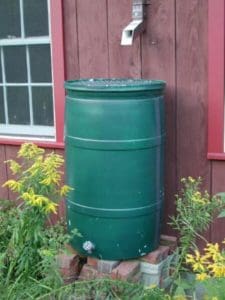
Not properly treating cistern water may increase the chance of getting sick from water-related illness, according to a new evaluation from the United States Virgin Islands Department of Health (VIDOH), in collaboration with the Centers for Disease Control and Prevention (CDC) and Love City Strong.
During the summer of 2019, health officials tested the cistern water quality of 400 randomly selected households on St. Croix, St. Thomas and St. John. The field team tested for the presence of bacteria called Escherichia coli, an indicator of human or animal feces contamination. They also tested water from a sample of 47 households for other types of germs and indicators of human sewage/septic contamination.
Results show that water in four of every five cisterns tested positive for E. coli contamination. Tap water sourced from cisterns and drawn from kitchen taps showed E. coli contamination in 58 percent of samples.
Additional cistern water testing for the subset of 47 households found:
- 36 percent tested positive for Cryptosporidium (17 households)
- 32 percent tested positive for Salmonella (15 households)
- 30 percent tested positive for Naegleria (14 households)
- 9 percent tested positive for human sewage/septic contamination (four households)
- 6 percent tested positive for Leptospira (three households)
- 0 percent tested positive for Giardia
Protect one’s self and one’s family from getting sick
Using cistern water without properly treating it increases the risk of getting sick. There is some risk of sickness if untreated cistern water is used for any of the following tasks: drinking, washing fruits or vegetables, brushing teeth, rinsing sinuses, washing an open wound and bathing/showering. The VIDOH recommends that households do not use untreated cistern water for the above tasks.
Consider treating the cistern water to remove or kill harmful germs or use bottled water to make sure the water is safe to drink. If someone cannot treat the cistern water, the person can reduce the chance of illness by boiling water for at least one minute before drinking it or using it for the tasks above. If someone uses untreated cistern water for any of the tasks listed above, remember there is some risk involved.
The following cistern water treatment options can help keep people and households safe:
- A household filtration system with ultraviolet light (UV) – A properly installed and maintained system can provide water that is safe to drink and use. (Note: sediment, refrigerator, faucet-mounted and pitcher [e.g., Brita] filters alone do not remove these germs.)
- A household chlorination system – A properly installed and maintained chlorination system can kill most harmful germs but will not kill parasites such as Cryptosporidium.
- For small amounts of water
- Boil water for one minute, or
- If someone cannot boil water, such as during an emergency or power outage, add household bleach (1/8 teaspoon or 8 drops per gallon of water).
The DOH is working with the CDC to identify and communicate specific environmental and household management practices to help U.S. Virgin Islands residents understand and address contamination risks to their cisterns. Please visit https://www.doh.vi.gov or www.facebook.com/virginislandsDOH for updates.
For more information:
- https://www.cdc.gov/ecoli
- https://www.cdc.gov/salmonella/index.html
- https://www.cdc.gov/parasites/crypto/index.html
- https://www.cdc.gov/parasites/giardia/index.html
- https://www.cdc.gov/parasites/naegleria/index.html
- https://www.cdc.gov/leptospirosis/index.html
- https://www.cdc.gov/healthywater/drinking/home-water-treatment/water-filters.html
- https://www.cdc.gov/healthywater/emergency/drinking/making-water-safe.html





